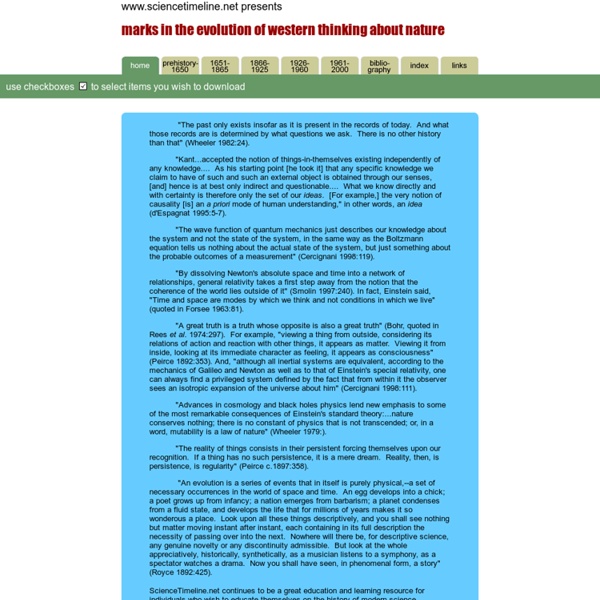



Big History Project (bh_p) sur Twitter Alexandre Meinesz – Comment la vie a commencé Comment la vie a commencé - Alexandre Meinesz D’où vient la vie ? Comment est-elle apparue sur Terre ? Quels ont été les premiers organismes vivants ? À quoi ressemblaient les ancêtres de formes de vies actuelles ? Alexandre Meinesz spécialiste des milieux marins et des premiers organismes ayant colonisé la Terre (les algues), abordera les mystères de la vie avec un éclairage original sur l’évolution du vivant, différent de celui des microbiologistes, des généticiens ou des paléontologues. Are We Still Evolving? Exit from comment view mode. Click to hide this space NEW HAVEN – Many public-policy decisions are based on implicit assumptions about “human nature,” and it is currently popular to speculate about how evolution might have shaped human behavior and psychology. But this raises some important questions: are humans continuing to evolve – and, if so, is our basic biological nature changing – or has modern culture stopped evolution? For some traits, we do not have to speculate – we can measure and compare on the basis of studies covering thousands of individuals over several generations. Scientists are taking two approaches. From this approach, we have learned, for example, that the ability to digest milk as adults evolved within the last 10,000 years – and several times – in cultures that domesticated sheep, goats, or cattle. Some scientists, myself included, have taken a different approach. And we expect those younger women to be shorter simply because they have had less time to grow.
Stephen C. Stearns - Yale University